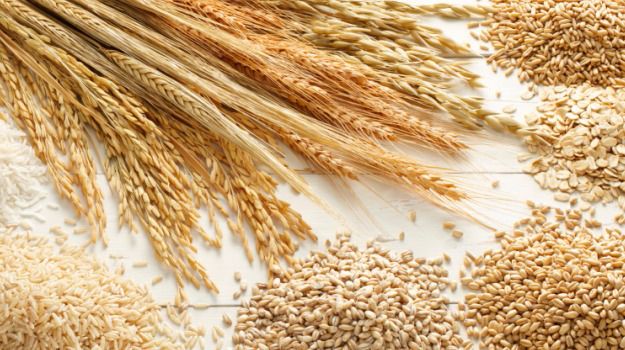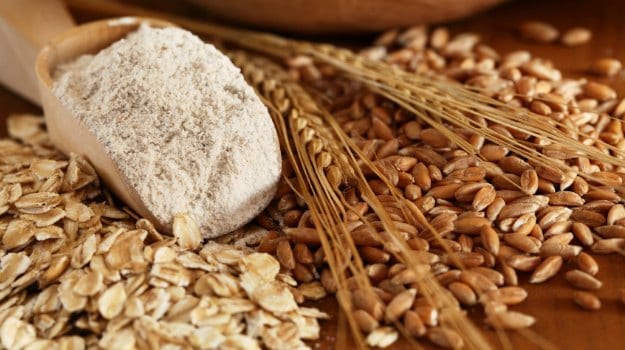

Various health experts vouch for the daily consumption of whole grains, considering they are power-packed with essential nutrients required by the human body. In fact, The United States Department of Agriculture (USDA) has recommended that children and adults should consume at least half of their grains as whole grains. Whole grains are a part of the original kernel, which includes bran, germ and endosperm in original proportions. While a high intake of refined grains like white rice, bread, et al are linked to various health problems, whole grains are known to promote health.
According to Dr Preeti Jain, Senior Dietician, Action Cancer Hospital, New Delhi, ”Whole grains bring many health benefits to your body. They not only help in meeting the nutrients level in the body, but also help in weight loss and reduce the risk of developing several chronic diseases. Thanks to the presence of numerous nutrients, fibre, vitamins and minerals that benefit the body and helps in maintaining a healthy weight. Whole grains help to keep blood sugar and cholesterol level low. Examples of some wholegrain foods are brown rice and oats.” Health Practitioner and Certified Health Coach Shilpa Arora agrees, “Whole grains are loaded with nutrients, for example, ragi is super rich source of calcium, amaranth is a great source of essential amino acids, and wheat germ is loaded with vitamin-E.”
Some of the examples of whole grains include – barley, sorghum, whole wheat, quinoa, oatmeal, millet, brown rice, whole rye, buckwheat, et al.
Here are a few benefits of whole grains that will convince you to add more of them on your plate every day.
1. Whole Grains Are Loaded With Fibre
If you are looking to avoid untimely cravings, then whole grains are your go-to foods. All thanks to the fibre present that tends to digest slowly, further keeping you fuller for longer. This will help you cut down on unnecessary bingeing. Include more oats, barley and bulgur in your diet to ensure you are loaded up on enough fibre for the day.

If you are looking to avoid untimely cravings, then whole grains are your go-to foods
2. Whole Grains Can Help Lower Your Cholesterol
Whole grains not only lower triglycerides, but also help to prevent your body from absorbing ‘bad’ cholesterol, both of which are key contributors to heart disease. Any form of whole grain, including whole wheat, brown rice, barley, oats, et al will help keep your heart safe.
3. Can Aid Weight Loss
If you are looking to shed extra kilos, toss away all the refined foods and opt for whole grains that will help you achieve your weight goals. These fibre-rich foods can help prevent overeating. According to a study by National Centre of Biotechnology Information, eating three servings of whole grains daily was linked to lower body mass index (BMIs) and lesser belly fat.

If you are looking to shed extra kilos, toss away all the refined foods and opt for whole grains
4. May Help Lower Your Blood Pressure
Both Mediterranean diet and DASH diet recommend eating whole grains in order to keep blood pressure in check. Intake of whole grains may increase the intake of potassium that has been linked to lower blood pressure. Whole grains also help reduce damage to your blood vessels and reduce the risk of insulin resistance.
5. Are A Boon For Diabetics
Whole grains are rich in fibre that can help to delay the absorption of glucose in the blood. This will reduce the chances of spiking blood sugar levels that can be dangerous for diabetics. Furthermore, whole grains like oats and brown rice are deemed as low-glycaemic foods that also prevent spiking blood sugar levels, reducing the chances of developing type-2 diabetes.

Whole grains are rich in fibre that can help to delay the absorption of glucose in the blood
6. Support Healthy Digestion
Thanks to the fibre content that keeps the bowel movements regular and help ward off digestive issues like constipation, diarrhoea and others. Whole grains also contain lactic acid that promote good bacteria in the large intestine and aid digestion, and further promote better nutrition absorption.
7. May Reduce Inflammation
Whole grains have been linked with reduced inflammatory conditions that can cause asthma, arthritis, et al. Whole grains may also cut levels of C-reactive protein, a marker of inflammation, which has been associated with heart diseases and type-2 diabetes.
Add more whole grains in your breakfast and ensure a healthy body, free from ailments. Make sure you cut down on refined grains to experience effective results!
[“source=food.ndtv”]




